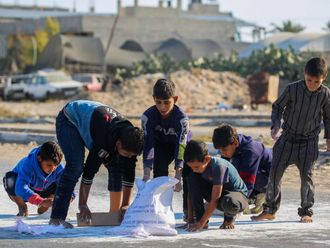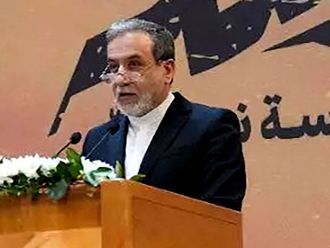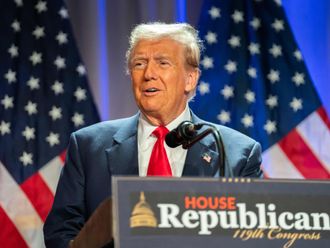
Beirut: Even if Lebanese Druze leader Walid Junblatt described Hezbollah as “a part of an Iranian system” in Lebanon and the region, Foreign Minister Jibran Bassil launched a diatribe against Prime Minister Tammam Salam on Sunday over remarks that the minister had committed a “foreign policy mistake” after his two anti-Arab votes at the League of Arab States (LAS) and the Organisation of Islamic Cooperation (OIC) that angered Saudi Arabia and its Gulf Cooperation Council allies.
In an interview on Al Jadeed TV, Bassil declared that Salam’s remarks that he “committed a foreign policy mistake, [and that his votes did] not represent Lebanon or the government’s policy”, did not reflect the position of the Lebanese government.
Lebanon sank further into political crisis as the pro-Syrian March 8 and the anti-Syrian March 14 camps accused each other of sabotage over the recent Saudi decisions to end a $4 billion (Dh14.69 billion) grant in military aid to the Lebanese army and security forces, followed by travel advisories to discourage Saudi citizens from going to Lebanon citing “safety” concerns, with other GCC states following suit.
Adding fuel to the fire, Bassil levelled sharp criticism at GCC countries, contending that Lebanon is “a free country and [though] it suffers from certain weakness, … others must understand its stances”.
Since no one raised any objections to Lebanon’s independence, it was unclear what prompted the tangential denunciation, even if Arab Gulf States raised specific concerns over “hostile Lebanese positions resulting from the stranglehold of Hezbollah on the state”.
Junblatt, in a telephone conversation over the weekend, urged Hezbollah chief Hassan Nasrallah to help drag Lebanon away from regional chaos. However, it seems that his call has fallen on deaf ears as March 8 politicians refuse to apologise for their pro-Iranian stances and continue to make provocative statements.
Riyadh was infuriated after angry mobs ransacked Saudi missions in Iran earlier this year. It was further disappointed by Beirut’s decision not to join in the LAS and OIC votes to uphold international law.
In addition to Lebanon’s refusal to join the LAS and OIC in condemning attacks on Saudi diplomatic missions in Iran, Riyadh was also angered by anti-Saudi rants, including declarations that called for the death of the Al Saud.











